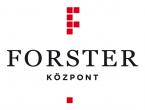
Legal background: the system of protection of movable heritage
The protection of cultural heritage in Hungary is regulated by a complex and differentiated legal and institutional system. Movable cultural heritage is protected by special legislation, providing several levels of protection. First, all antiquities and artistic objects (regardless to their financial value) belong to the category of ‘cultural goods’. These enjoy a general protection, e.g., criminal activities involving cultural goods are punished more severely. Second, archaeological finds (in the soil or under the water) are state property and must be placed in public collections. Third, objects belonging to public collections (museums, libraries and archives) as well as movable accessories (furnishings, equipment) of architectural monuments are protected by the law, meaning that they must not be sold and special rules apply to their restoration, etc. Fourth, cultural goods outside of public collections (mainly in private hands), which are ‘irreplaceable and of outstanding significance’ shall be protected (listed) by resolution of the responsible authority. Such listed cultural goods and their owners shall be registered by the responsible authority and special rules apply to them. For example, these objects are only allowed to leave the country (either to other EU Member States or outside the EU) on a temporary basis and exclusively with culturally relevant aims (exhibition, etc.). The objects mentioned in points two, three and four shall be considered as Hungary’s ‘national treasures possessing artistic, historic or archaeological value’. Finally, cultural goods older the 50 years of age are allowed to leave the territory of Hungary only with a certificate or export licence issued by the responsible authority.
Institutional background: the Inspectorate of Cultural Goods
The Inspectorate of Cultural Goods at the Gyula Forster National Centre for Cultural Heritage Management in Budapest is an independent state authority under the supervision of the State Secretary of Culture. The Forster Centre is responsible for several cultural activities including the maintenance of state-owned castles and the inspection of World Heritage sites, etc. On the basis of cultural heritage legislation the Inspectorate of Cultural Goods is part of the national public administration system and has exclusive competence at national level concerning the protection of movable cultural goods.
Fight against illicit traffic in cultural goods: legal and ethical tools and the practice
The Inspectorate of Cultural Goods is the central point of contact in the cultural sector for cooperation at national, EU and international level. Its role is based on the relevant legislation and a multilateral agreement between Police, Customs and Cultural authorities signed in March 2006 and renewed in September 2012. The main result in this field was the establishment of a central database of stolen and missing cultural goods in late 2004. The Inspectorate maintains a 24 hour ‘help desk’ for police and customs officers in urgent cases (e.g., inspections at border crossing points). It regularly organizes special training sessions for police and customs officers. The Inspectorate regularly takes part on conferences and seminars to disseminate information and to improve cooperation in this field. In cooperation with police and customs authorities, exhibitions on solved criminal cases and saved or returned cultural objects were organized in 2006 and 2012. It also published several books, leaflets on this issue to raise awareness among art dealers, collectors and public collections experts.
Main resources: published materials
The Inspectorate of Cultural Goods (as part of the Gyula Forster National Centre for Cultural Heritage Management) has its own web page containing all relevant information on this issue including the legislation in force, description of procedures, databases and contact points. Beyond the possibilities of a regularly updated web page, other channels of communication are also used for this purpose. Hungary provided information on the general situation and data on 25 important stolen cultural objects for the European volume of the ICOM series One Hundred Missing Objects in 2001. In cooperation with other state agencies, a leaflet was published in 2005 containing the Hungarian translation of the ICOM Code of Ethics of Acquisition and the UNESCO Code of Ethics for Art Dealers (Entitled Amit mütárgyvásárláskor mindenképpen tudnom kell… – in English: Things to know when buying works of art…) In 2006, connected to an exhibition of stolen and smuggled cultural goods, a catalogue was published with the title (Al)világot járt mükincseink – Válogatás 15 év felderített büneseteiböl – in English: Treasures passed through the underworld – A selection of solved crimes of the past 15 years. It contains – beyond the description of important criminal cases – a first overview on the situation and the main actors in Hungary.


